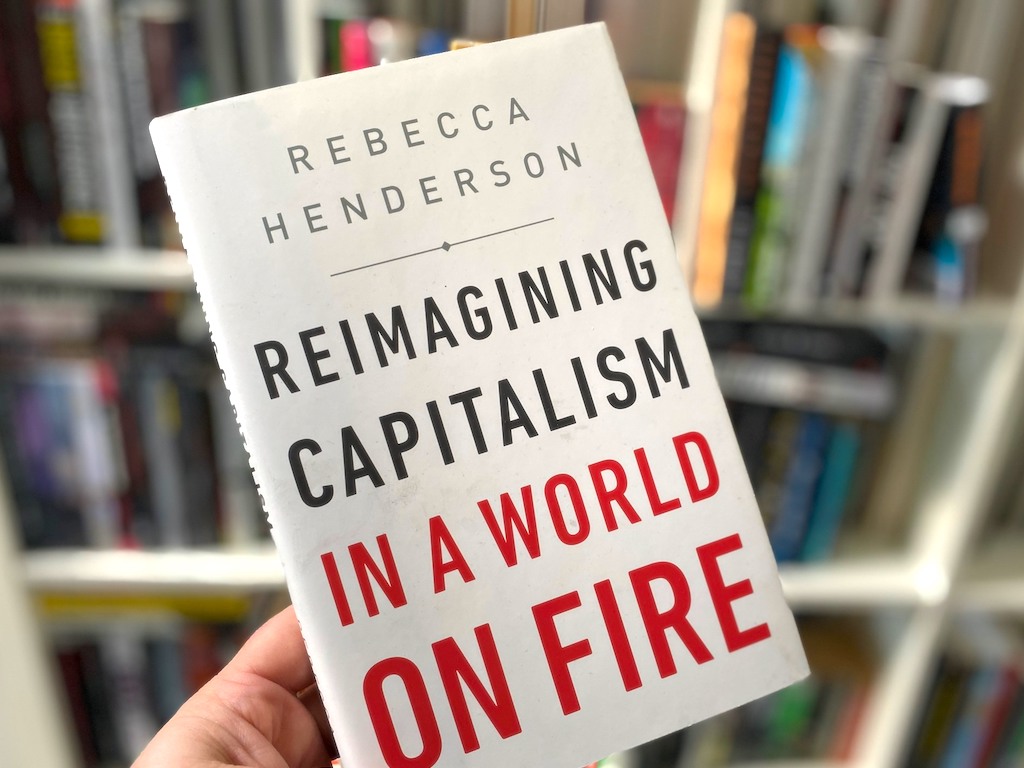‘Reimagining Capitalism In A World On Fire’: Why A Zero Carbon Economy Can’t Happen Without Corporate Buy-In
3 Mins Read
In her new book Reimagining Capitalism In a World on Fire, renowned Harvard University professor Rebecca Henderson takes on the question of why businesses have a huge role to play in addressing climate change. Based on her own university course “Reimagining Capitalism”, which grew from 28 students to over 300 each year, Henderson makes a strong case for the private sector to wake-up and translate their current sustainability commitments – which have only grown louder during the pandemic – into the real and urgent action the planet needs in order to avoid climate catastrophe and the end of humanity as we know it.
Speaking to Forbes in a recent interview, Henderson talks about the prevailing orthodoxy – free market capitalism – and how this very business-for-profit approach has been at the heart of ecological destruction. We all know it, but we’re not acting on it.
“It’s just crazy that we’re not acting on this. It’s as if we’re all stuck playing an elaborate game and we all play our part without really thinking about the fact that the game is very destructive,” she said. “We need to wake up to that, to take it personally and make the investments required to change it.”
That’s exactly what her new book, which was published earlier in April, is all about. Henderson takes apart the current worldview that the purpose of businesses is to maximise shareholder value and to make money. She shows this approach isn’t actually providing prosperity for all, let alone doing anything to make the planet livable.
On the contrary, the prioritisation of profit has led to the unsustainable resource extraction, production, consumption and is the motive behind almost all of the most polluting and carbon-intensive industries today, be it fossil fuels or animal agriculture.
Our existing global economic system is also the reason why not enough people care about the climate crisis at all. “Until people feel secure and believe they can take care of their families and they’re going to have a shot at a good job, it’s going to be tough to persuade people to really invest at the kind of scale we need to transition to a carbon free economy,” Henderson tells Forbes.
“So, just pragmatically, we need to address inequality if we’re going to make progress on climate change.”
For years, we’ve failed to “reimagine capitalism”, as Henderson puts it. But right now, the coronavirus pandemic – which has triggered the biggest economic upheaval experienced since the 1930s – is representing an opportunity for change. For the Harvard professor, this change needs to be geared towards a system that serves not only to provide wealth in an equal manner, but also to exist in harmony with the realities of our environment.
“The pandemic is illustrating how quickly we can change when we need to,” she says in the interview. “And now we see that when we want to, we can do amazing things.”
Henderson is clear that this change to ease our burden on our planet isn’t going to be simple or inexpensive. “Reimagining capitalism is not easy or cheap,” she writes in the book.
But it’s necessary. Temperatures are inching higher and higher every single year. Just last month, parts of the Arctic circle recorded heat levels on par with Hong Kong, a city with a subtropical climate some thousands of miles away. According to some of the most up-to-date projections, 300 million people will be experiencing annual coastal flooding by 2050 as a direct result of sea-level rise.
On our current trajectory, scientists say that we simply have no choice but to take action now, because it’s the cheapest option we have left.
Reimagining Capitalism In a World on Fire, with its in-depth stories of companies that have already made steps towards transforming capitalism, takes a glimpse into what business-led climate action could evolve into. It’s a radical proposal to make businesses at the forefront of turning inequality on its head, but the stakes have never been greater.
Lead image courtesy of Harvard Business School FB.




